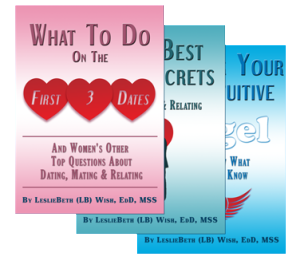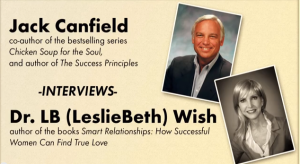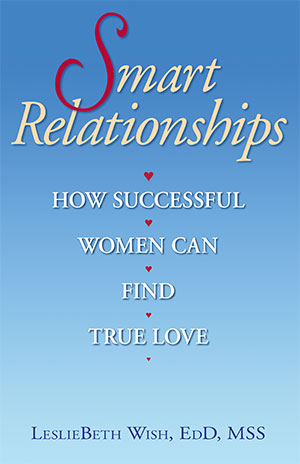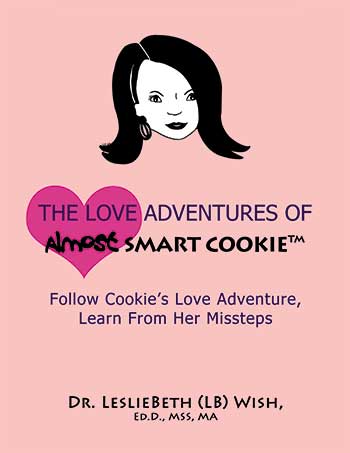 Not sure if your relationship is a go or not? How do you know if your deal breaker checklist is too long—or too short?
Not sure if your relationship is a go or not? How do you know if your deal breaker checklist is too long—or too short?
And should you have a deal breaker checklist at all? The answer is: Yes, you should have this kind of checklist. The issue is not whether you should have one but rather what’s on that list.
Your checklist should have your emotional needs statements. You can have several emotional needs. The goal is to know you.
Here are four examples:
- “I need someone who is a take-charge person.”
- “I need someone who is easy-going.”
- “I need someone who does not have substance abuse problems.”
- “I need someone who values monogamy.”
Fill in the blank for your own emotional needs statements: “I need someone who is _______________________________________________________________.”
Notice that my examples did not say things such as: “I need someone who looks like a magazine cover.”
Here are some great tips to help you sort out your relationship deal breakers. This advice comes from my decades of working with over 10,000 clients, from my five-year research with thousands of women for my book, and from the research of others.
The inspiration, however, for writing this article is an article that appeared in the Tuesday, November 3, 2015, article in the Wall Street Journal’s Personal Section, entitled “Lazy? That’s a Deal Breaker.”
The article specifically refers to a paper published online in October 2015 in the Personality and Social Psychology Bulletin. The paper reports findings from a series of six researchers from Western Sydney University, Indiana University, University of Florida, Singapore Management University and Rutgers University.
Let’s start with the relationship deal breaker findings that both men and women agree are their top ones in this order:
- Disheveled
- Laziness
- Too Needy
Their findings also reveal that significantly more men than women reported that their next top deal breakers were:
- Talks Too Much
- Low Sex Drive.
In comparison, significantly more women than men reported that their next top deal breakers were:
- Lacks A Sense Of Humor
- Bad Sex.
Do these choices sound like you? Don’t worry if they don’t. The researchers were the ones who created these choices.
But here are some thoughts about sexual issues and a sense of humor. “Happiness in sex tends to be less about performance and technique than it does feeling close, special, loved, considered, and respected.”
So, hot sex at the very beginning of relationships could be a sign of a partner’s potential emotional ability to love—or it could be for show or a lure. Hmmm…Only months and months together with this person will tell you more about him or her.
The studies say that a sense of humor is important because it is an indication of intelligence. But, in my research and practice, I discovered that a sense of humor can also be an indicator of a person’s ability to “go with the flow,” accept life’s absurdities, laugh at themselves, and—very importantly—be flexible. Strong relationships are flexible ones.
What are missing from the researchers’ list are a person’s unique emotional needs—which are often difficult to identify in yourself. You have to do your emotional homework.
Your emotional needs are neutral. It is not better or worse to want an easy-going person rather than a commanding person. It’s crucial to find out what you need. If you aren’t sure, you might want to use these tested tips for finding out.
Ask yourself questions such as:
- What did my parents or caregivers show me about anger, problem-solving, trust, men, women, closeness, and acceptance? Which of these do I want to copy?
- What are the influences of my functional birth order? Did I like being the main leader and go-to person? Did I like being the baby or the maverick? Do I want to repeat this pattern in my relationships?
- What are the influences of my being the favorite or least favorite child? Favorite children might feel love—or too many expectations. Least favorite children might feel criticism and rejection—or the freedom to be themselves! Which of these do you wish to bring to your relationships?
If you don’t do your personal emotional checklist, then you risk being picky about things that could end up being unimportant later.
So, what are some too picky things?
No list can include or exclude ones that apply to you. But here are the top ones from my research that tend to clog checklists:
- Has to be rich
- Has to be really good-looking
- Has to be exciting
- Has to “give me a life” or “take me away from the one I got.”
What might be wrong with these items?
Well, money can’t buy you love, but studies show that you don’t have to be rich to be happy. Mutually satisfied couples say that being able to make reliable income creates feelings of trust, safety, love and respect.
What about really good-looking?
Men especially tend to be more visually stimulated. But smart couples report that when they perceived their partner as a wise choice, then they perceived their partner as good-looking!
And excitement?
Wise couples kept the spark alive by doing new things. The excitement and anxiety of the unknown increased their feelings of bonding.
And your partner “giving you a life?”
That can backfire. The person who felt they didn’t have a life could end up feelingovershadowed and overlooked.
So is there such a thing as being “too picky?”
Keep this research finding in mind: Long, detailed deal breaker checklists are the refuge of people who are deeply scared of commitment and of making a mistake that they don’t believe they can recover from.
I wish you a wise list!







